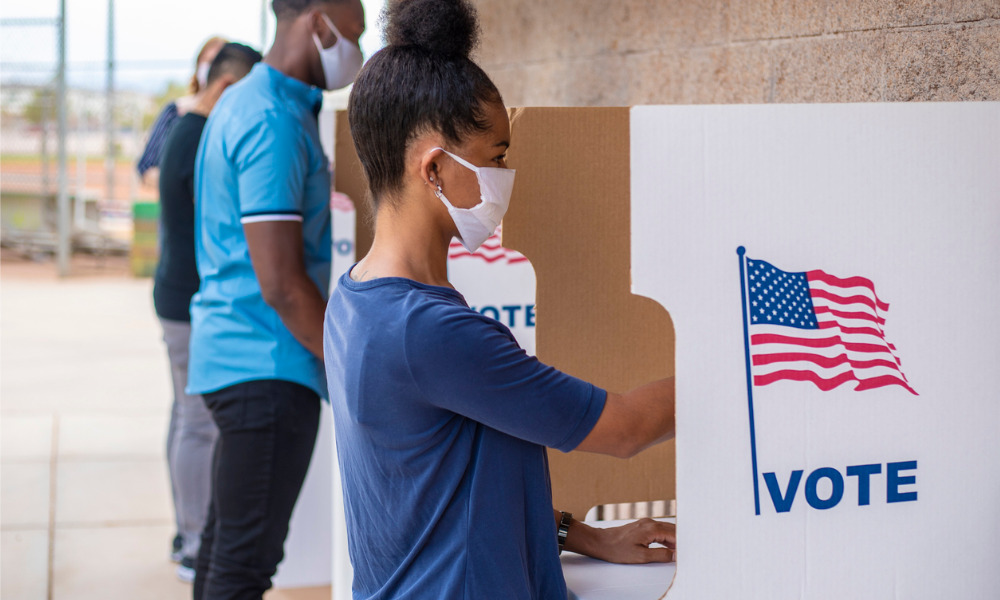Head of equities contemplates a 'blue wave' in the U.S. and how that would affect market volatility

Brace yourselves – this U.S. election promises political and policy turbulence like never before.
Stephen H. Dover, head of equities at Franklin Templeton, believes the uncertainty is compounded by these COVID-19 times and that Inauguration Day and the immediate aftermath could be more volatile than past elections.
He said: “After the election results are clear, there is a high possibility that there will be more legislative changes than we have historically experienced, especially if there is a ‘blue wave’.
“Election uncertainty will likely lead towards more market volatility and the need to think about political considerations when navigating your investments.“
Dover highlighted a few characteristics of the upcoming election that will contribute to the potential for change and the air of uncertainty.
Firstly, that the first US vice-presidential candidate of Black and Asian American descent is on the ballot, reflecting America’s changing demographics. Secondly, that a high portion of the electorate is likely to vote absentee or by mail.
Dover said: “It may take longer to tally results, providing uncertainty and grounds for disputes. Some congressional results and perhaps the presidential result will not be known immediately after election day. This could create market volatility on the days following the election.”
His final point is that the U.S. Senate’s slow process for advancing major legislation has made it easier for investors to predict policy changes. Dover referred to its moniker as “the world’s greatest deliberative body” due to its longer terms, smaller size and statewide constituencies and its historically reputation as a more collegial and less partisan atmosphere than the House of Representatives.
The Senate filibuster requires 60% of the Senate to agree to pass major legislation, and therefore requires some cooperation between the political parties. Investors have often preferred this “gridlock”.
Dover explained: “The days of the Senate filibuster are likely numbered as both presidential candidates indicate an openness to eliminating it. In the past few years, the filibuster rules were modified for some budget and tax issues, and political and judicial nominations.
“A change to the remaining Senate filibuster rules will make it more likely that major legislation affecting investors will be implemented and then perhaps retracted when a future Congress is of a majority different party.”



